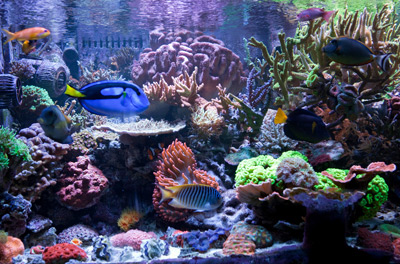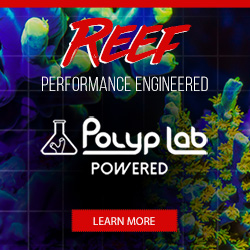
The maximum level of acceptable bioload is unique to each system based on a variety of factors
The bioload in a reef aquarium increases through both the acquisition of new specimens as well as the growth/reproduction of established livestock. So, unless fish and corals are dying in significant numbers (which they shouldn’t be unless there’s a major problem), the bioload in any reef system is usually trending upward. While it’s exciting and rewarding to see our tanks bustling with life, we all know there is a certain threshold beyond which a system contains more organisms than it can reasonably sustain in good health. Unfortunately, there’s no alarm on our tanks that sounds when we’re approaching or surpassing that threshold. There are, however, certain signs that tell us it might be time to back off the bioload by rehoming a specimen or thinning coral colonies.
Here are just a few examples:
Stubbornly high nitrate/phosphate levels
We can’t prevent our livestock from producing waste (not even with little corks!), and we can only limit what we feed our fish and invertebrates to a certain extent. So if your nitrate and phosphate levels remain stubbornly high despite doing everything in your power to minimize nutrient import and maximize its export (using RO/DI-purified tap water, employing a quality protein skimmer, performing copious water changes, etc.), there’s a good chance your system’s bioload is simply too high.
Stubbornly low or unstable pH
The more animals you have respiring and producing waste in your tank, the more rapidly buffering compounds in the water will be used up (in other words, the lower the alkalinity, or the water’s ability to neutralize acids) and the harder it will be to maintain an appropriately high and stable pH MORE










0 Comments